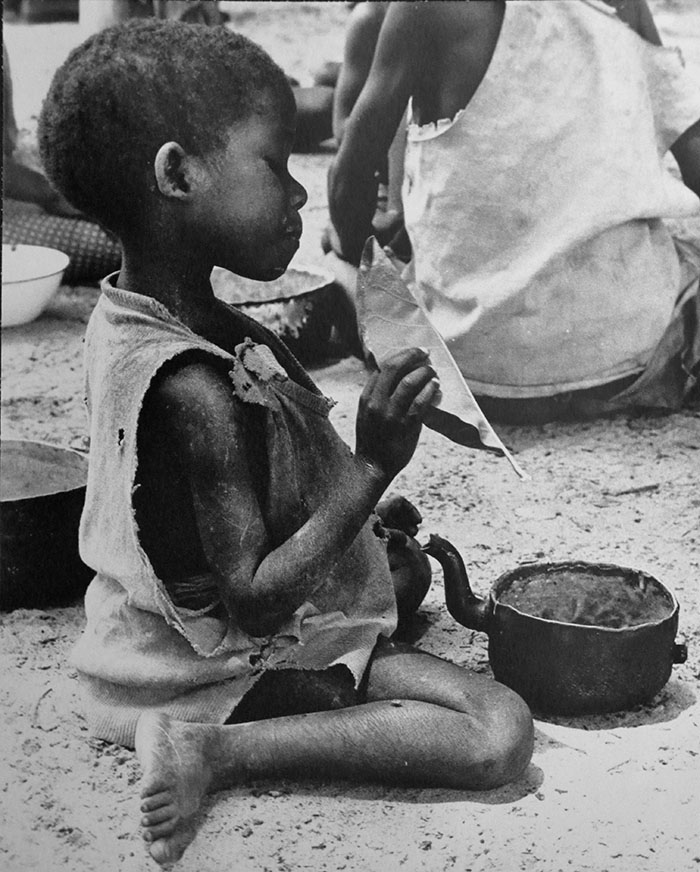
Wednesday 8 April 2020 / 21 Days Lock Down Reflection
Clench of Poverty
From my journals:
As to what happened to these children
I do not know,
Did they survive the fangs of malnutrition?
Do they now have a family of their own?
Did they suffer the tyranny of the militia?
Were they subjected to rape, abuse or laundered?
Perhaps one was adopted by a lonely rock star
or did they fall prey to the aimless brutality of genocide?
As to what happened to these children
I do not know
What I know is they were hungry
and I took their picture.
Soup kitchen Dondo, Mozambique, May 1992.
Photos taken on 35 mm Negative film.
Poverty & Paradise
The year was 1992. I was stationed for 6 weeks with an associate of mine in the heart of Mozambique in a place called Pambarra. This remote village was located 20km inland from the coastal fishing town of Vilanculo. My initial impression of this rural area was that I had found myself in a place of paradise; pristine white beaches dotted with palm trees, tropical weather with the ideal sea temperatures, a not too distant cluster of islands teaming with exotic fish, flamingos and never ending dreamy sunsets. However there was a trend that seemed to follow every beautiful place I encountered during my African excursions – wherever I found paradise, I also witnessed unimaginable poverty.
Pambarra Orphanage
In Pambarra we were to assist in the oversight of an orphanage, whilst the family in charge of this mission station had taken a much needed vacation. These children had been displaced by a devastating war and were in need of shelter, food and primary care. There were some that had lost limbs due to the numerous land mines that had littered this war torn country. These 35mm pictures were taken at a soup kitchen not far from Pambara. These children had limited care, they were part of a group of refugees fighting for survival.
Mozambique’s History of War
Mozambique was a colony of Portugal until 1975. An 11 year war of independence ended with the establishment of an autocratic Marxist government. A 17 year civil war followed soon after independence with an internal military uprising that was supported by some foreign governments. The civil war affected Mozambicans severely, especially in rural areas. By the late 1980s Mozambique had one of the lowest per-capita caloric intakes in the world. It was in this post-war state that I found myself.
An Experience of a Lifetime
In Pambarra, there were no adequate roads or communication. The only way we were able to converse with the outside world was through a tottering telex machine in Vilanculo. Needless to say the experience was one of the most exhilarating and eye opening of my young adult life. Over the years there have since been vast improvements in Mozambique with intense land mine clean-up operations. I do hope in this lifetime I get another opportunity to visit this beautiful country.
Fast forward to April 2020
World stats: Currently Some 842 million people in the world do not have enough food to lead a healthy active life. That’s about one in nine people on earth. The vast majority of the world’s hungry people live in developing countries, where 12.9 percent of the population is undernourished.
So far this year there are over 3 million people across the globe who have died from starvation.
14 000 of them died today by 11am Greenwich Meridian time


